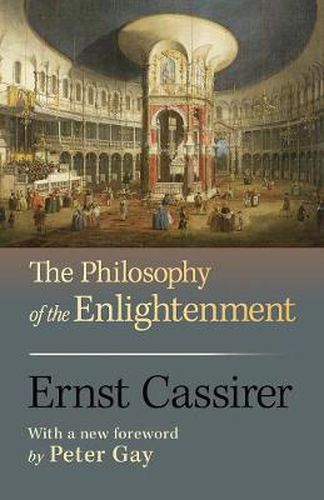Readings Newsletter
Become a Readings Member to make your shopping experience even easier.
Sign in or sign up for free!
You’re not far away from qualifying for FREE standard shipping within Australia
You’ve qualified for FREE standard shipping within Australia
The cart is loading…






In this classic work of intellectual history, Ernst Cassirer provides both a cogent synthesis and a penetrating analysis of one of history’s greatest intellectual epochs: the Enlightenment. Arguing that there was a common foundation beneath the diverse strands of thought of this period, he shows how Enlightenment philosophers drew upon the ideas of the preceding centuries even while radically transforming them to fit the modern world. In Cassirer’s view, the Enlightenment liberated philosophy from the realm of pure thought and restored it to its true place as an active and creative force through which knowledge of the world is achieved. In a new foreword, Peter Gay considers The Philosophy of the Enlightenment in the context in which it was written - Germany in 1932, on the precipice of the Nazi seizure of power and one of the greatest assaults on the ideals of the Enlightenment. He also argues that Cassirer’s work remains a trenchant defense against enemies of the Enlightenment in the twenty-first century.
$9.00 standard shipping within Australia
FREE standard shipping within Australia for orders over $100.00
Express & International shipping calculated at checkout
In this classic work of intellectual history, Ernst Cassirer provides both a cogent synthesis and a penetrating analysis of one of history’s greatest intellectual epochs: the Enlightenment. Arguing that there was a common foundation beneath the diverse strands of thought of this period, he shows how Enlightenment philosophers drew upon the ideas of the preceding centuries even while radically transforming them to fit the modern world. In Cassirer’s view, the Enlightenment liberated philosophy from the realm of pure thought and restored it to its true place as an active and creative force through which knowledge of the world is achieved. In a new foreword, Peter Gay considers The Philosophy of the Enlightenment in the context in which it was written - Germany in 1932, on the precipice of the Nazi seizure of power and one of the greatest assaults on the ideals of the Enlightenment. He also argues that Cassirer’s work remains a trenchant defense against enemies of the Enlightenment in the twenty-first century.